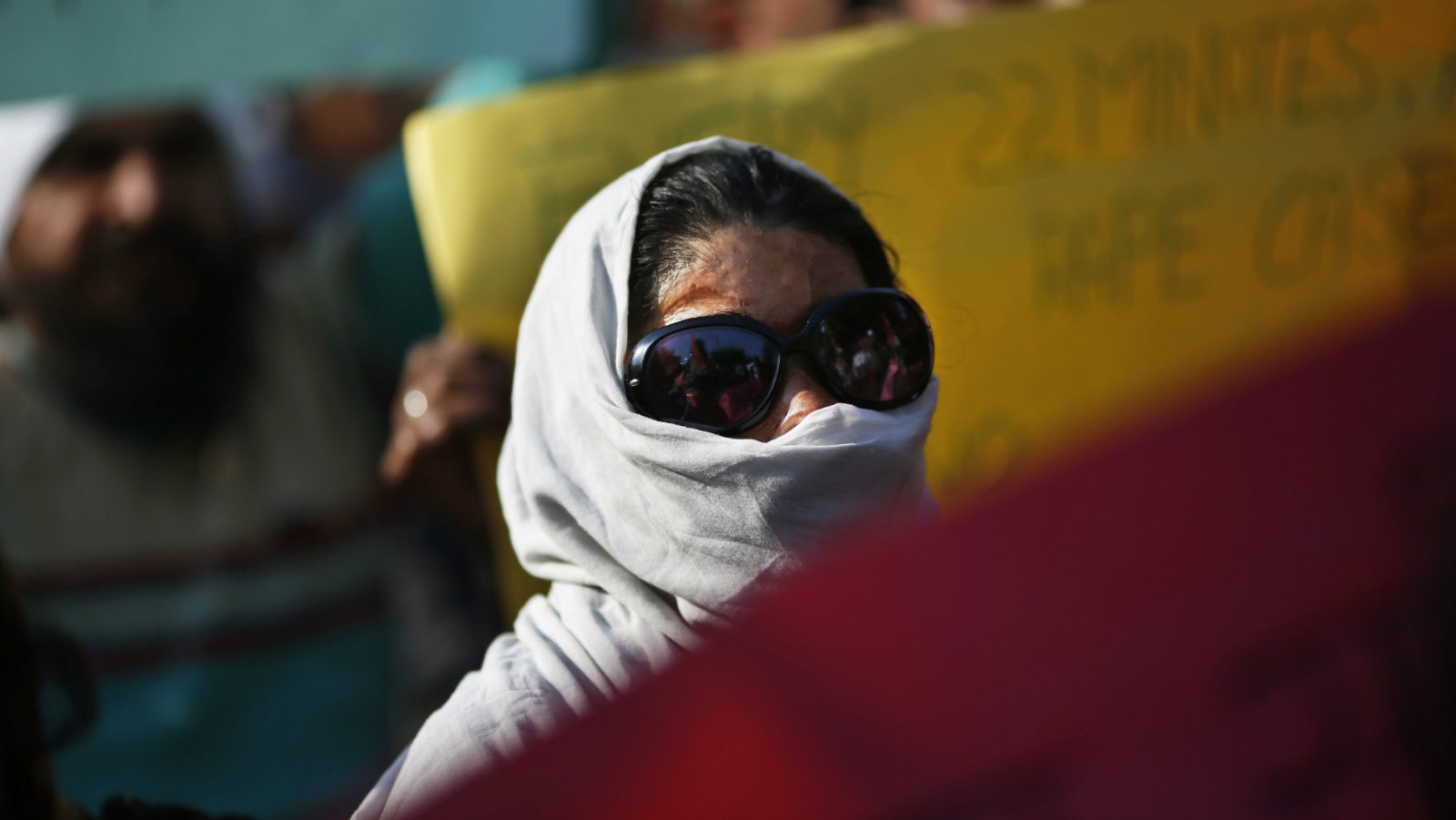Female tourists now have another reason to stay away from India: acid attacks
A quick search on the internet can put off any foreign woman from travelling to India. At any given point, there is a slew of media reports on horrific crimes against women in the country, including kidnappings, rapes and molestations. These are, in fact, so commonplace that a woman in India reports a rape every 30 minutes.


A quick search on the internet can put off any foreign woman from travelling to India. At any given point, there is a slew of media reports on horrific crimes against women in the country, including kidnappings, rapes and molestations. These are, in fact, so commonplace that a woman in India reports a rape every 30 minutes.
Female tourists haven’t been spared the ordeal either. This year, there have been at least two cases of attacks on foreign women—an American woman was gang-raped in Dharamshala, in the northern Indian state of Himachal Pradesh, in September; and a Japanese girl was raped in Jaipur, Rajasthan, in February.
Now, perhaps for the first time, a foreign woman was attacked with acid in India.
On Sunday (Nov. 13), a 23-year-old Russian national suffered an acid attack in Varanasi, in the north Indian state of Uttar Pradesh. The accused Siddhartha Srivastava—son of the owner of the house where the victim, Darya Prokina, was staying—threw acid on her while she was asleep.
“In our research, we have never found any other case of a foreigner being attacked with acid in India. This is the first,” Ashish Shukla of the Stop Acid Attacks campaign told Quartz. The campaign is an initiative by the Chhanv Foundation, a non-profit dedicated to rehabilitation of acid attack survivors in India.
Acid attacks are alarmingly common in India. In 2014, 309 acid attack cases were reported, according to the National Crime Records Bureau. Though the data does not contain a gender breakdown, almost two-third of the victims were women, activists estimate. Often, men throw acid at women who reject their marriage offers or attempts to start sexual relationships.
Fighting for her vision
At Delhi’s Safdarjung Hospital, Prokina is fighting for her vision, even as she has suffered more than 40% burns all over her body.
“She has sustained 45% chemical burns on her face, eyes, neck, chest, and other areas. Her vital parameters are stable,” Poonam Dhanda, a spokesperson at the Delhi hospital, told the Indian Express newspaper.
“Her face and eyes are badly burnt. We have stabilised her and completed initial tests,” an unnamed senior doctor at the burns ward told the Indian Express. “Now our priority will be to prevent any infection. We will also try to see how far her vision can be restored, particularly in the left eye, which is the less severely burnt of the two.”
The Uttar Pradesh police have caught the accused—a student at Benares Hindu University, who initially fled to Allahabad—but then returned to visit the survivor in a Varanasi hospital, where she was first admitted.
“Srivastava was unhappy over the decision of the woman to return to Russia. They had a quarrel over the issue after which Srivastav threw acid on her,” Akash Kulhary, senior superintendent of police, told reporters.
The two had reportedly become close during Prokina’s stay at their house. ”I threw acid on her in a fit of rage as she was not willing to talk to me… Though she had turned down my marriage proposal, I was fine with it. But I did not want her to go away,” the accused said at a press conference.
Meanwhile, India’s external affairs minister, Sushma Swaraj, has asked the state government for a report, and offered to fly Prokina’s mother to India “to be by the side of her daughter”. In addition, Uttar Pradesh chief minister Akhilesh Yadav has sanctioned Rs5 lakh ($7,571) from the chief minister’s relief fund.
Although laws exist to restrict the sale of acids in India, activists say it is easily available.
“The Supreme Court directive has been around for a long time, but nothing has been done at the state or administrative level for the regulation,” said Shukla.
“Only under a Poisons Act undertaking can a shopkeeper give acid. He has to maintain a register, fill information about the buyer, identity proof, and so on. Until now, that has not been done,” he added.